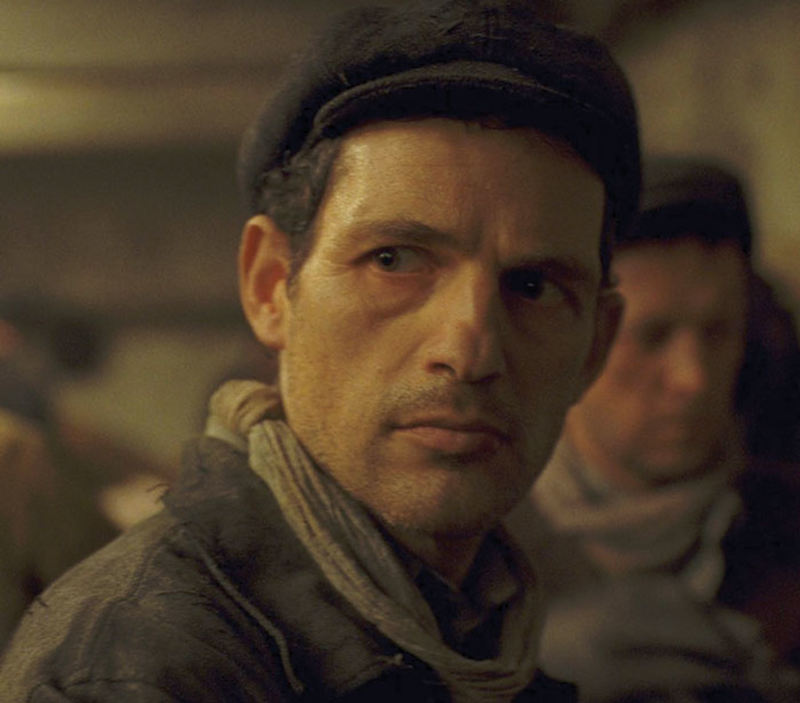Walking the path of another and gaining a different perspective gets lauded often. Film sometimes allows for an uncomfortably literal approximation of this notion. At this year’s Toronto International Film Festival, a couple of films sought, through very unique means, to immerse viewers in the realities of their protagonists. In one case, the recently renamed Hardcore Henry, from producer Timur Bekmambetov (Night Watch) and first-time feature writer/director Ilya Naishuller, jacks audiences into an action-thriller via a video game-style first-person shooter perspective. The narrative seemingly follows all of the conventions of hardcore gaming worlds. Kill or be killed is the adrenaline-junkie mantra.
Far across the spectrum lies László Nemes’ harrowing fever dream Son of Saul. The co-writer (along with Clara Royer) and first-time director takes a much more daring challenge, handcuffing us to Saul Ausländer (Géza Röhrig), a Hungarian Jew forced to work as a Sonderkommando in one of the Auschwitz crematoriums. The Sonderkommandos ushered unsuspecting prisoners into the oven chambers, pretending to assist with showers, and then handled the odious cleanup duties before the next group of prisoners were brought in. Unlike most of the other prisoners in the camps, the Sonderkommando knew what was to be their ultimate fate. They “earned” preferential treatment from the Nazis, which amounted to little more than a momentary stay of execution.
It is impossible to know how you would react if placed in a similar situation. From our comfortable remove, we can assume that we might prefer to die with dignity, knowing that we did not have a hand in aiding the Nazis. This is the idealized dream of fools.
Nemes, through shrewd narrative and technical expertise, binds us to Saul. The camera feels as if an extremely tight leash tethers it to him. We never completely see the world through his eyes, but we are also not allowed so great a divide that would permit us a sense of safety or absolution. Right from the start, we understand what it is that Saul does, and because we are right there with him, we feel the very moral stain of the act.
More importantly, thanks to the mesmerizing performance of Röhrig, we appreciate the toil taken on Saul’s psyche. The decision to accept such complicity has driven him mad. At first, it is nothing more than a deadness in the eyes, a vacancy that we know plunges all the way through his soul. Almost immediately, it becomes clear that Saul is past the point of death having the ability to end this torture. As the narrative unfolds, we see that the Sonderkommandos have conceived of a plan to rebel against the Nazis, to make a last-ditch attempt to rise up, and at least gain honor and redemption in death.
But Saul is beyond such hope. Having psychologically given up, Saul dreams up an even crazier means of seeking some final solace. During his duties, he stumbles upon the body of a boy that has escaped the flames. The child died of asphyxiation, and Saul, it appears, fears what sort of horrific experiments the Nazis will conduct on the body, so he hatches a scheme to squire the body away and prepare a proper kosher burial. To do so means enlisting other Sonderkommandos in a conspiracy that could get them killed, and distract them from their rebellious tasks at hand, which matters little to Saul.
The idea of protecting the body of this boy inspires Saul to “claim” him as his own son, the son he could not save from the horrors of the Nazis and the camps. The dawning morality rising up in Saul (and the infectious jolt of life in Röhrig’s performance), though, gets countered when we start to question whether or not the boy is, indeed, Saul’s son. As he rushes headlong seeking assistance and risking all to achieve this goal, the technical restraints that Nemes has constructed offers us perspective of either the angel or devil sitting on Saul’s shoulder. We wonder about his mental and emotional stability, but we cannot do that without raising doubts about our own, if we were Saul.
Nemes isn’t able to place us directly in Saul’s shoes, but we can more than imagine living in his skin, feeling the pain — literal and metaphoric — and seeing, up close and personal, the shape he’s in.
And that body, that son Saul wants to protect, could be ours. (Opens Friday) (R) Grade: A






